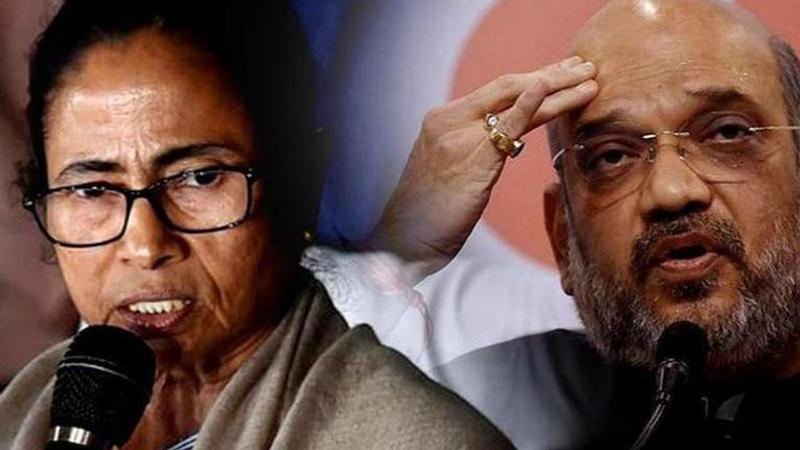Published 14:56 IST, December 18th 2019
WB CM Mamata Banerjee ends 3-day protest march against CAA and NRC, slams HM Amit Shah
West Bengal Chief Minister Mamata Banerjee on Wednesday ended her three-day protest march against CAA and NRC; during the protest, she also slammed HM Amit Shah

With Anti-CAA protests strengthening across many States in India, West Bengal Chief Minister Mamata Banerjee on Wednesday ended her three-day 'No CAB, No NRC' protest march against the Citizenship Amendement Act (CAA) and National Registration of Citizens (NRC). On the last day of her protest march, Mamata Banerjee walked through the iconic Howrah Bridge.
During her address to the huge crowd that had gathered at the 'No CAB No NRC' rally, the West Bengal Chief Minister stated that she won't let BJP do its Communal Politics in West Bengal and also slammed Home Minister Amit Shah for 'enlightening fires'. She said, " Dear Home Minister, your work is to stop fires not enlighten it. When parts of the country are burning, why are you saying it'll happen..? you said Aadhaar won't work.. then why spend Rs. 6000 crores making it? I am asking as a citizen... I have the right to question."
Mamata calls for peaceful protests
At the protest, CM Mamata also openly challenged Prime Minister Narendra Modi-led Central government to try and impose NRC in West Bengal. She said, "NRC wont work, i will see how you implement it here." She also went on to call a law implemented by force to be unconstitutional.
During her closing address at the rally, she asked the protesters to not block the railway tracks or roads, instead, protest peacefully by singing songs. Calling for a peaceful democratic protest she said, "A few sporadic incidents have happened and then they have stopped trains. If people do blockades then how will kids go home? Heard of an incident in Sakrrail where school kids were stopped. I told the police to make sure they go home. No blockades."
About Citizenship Amendement Act
The Act seeks to provide citizenship to the minority communities namely Hindus, Sikhs, Buddhists, Jains, Parsis and Christians from Afghanistan, Bangladesh and Pakistan. This will be applicable to the members of these communities having arrived in India on or before December 31, 2014. Moreover, they will not be considered as illegal migrants.
Updated 17:04 IST, December 18th 2019




